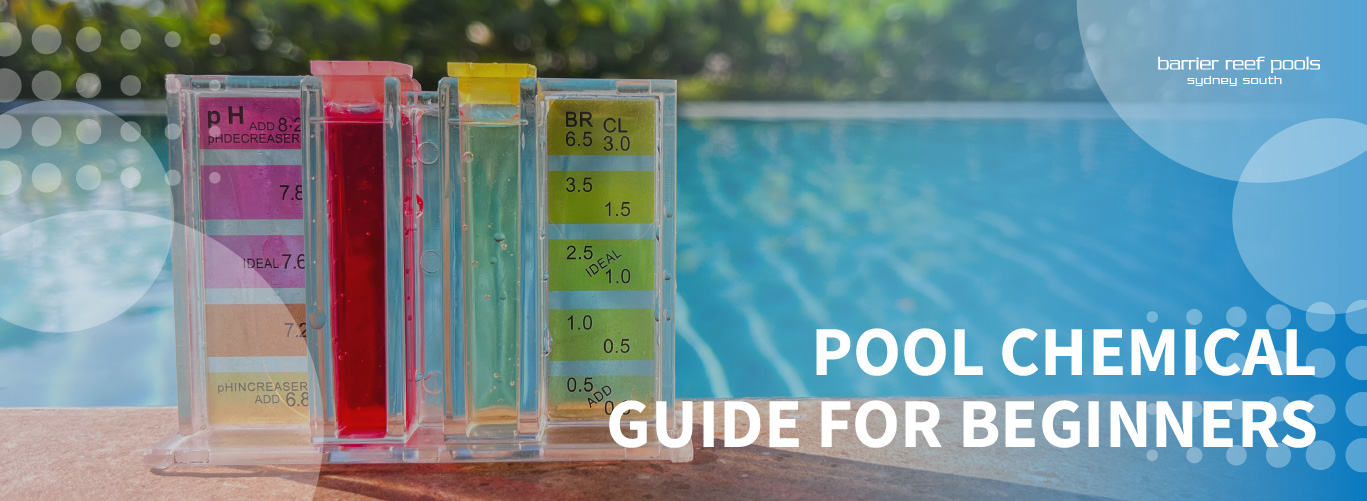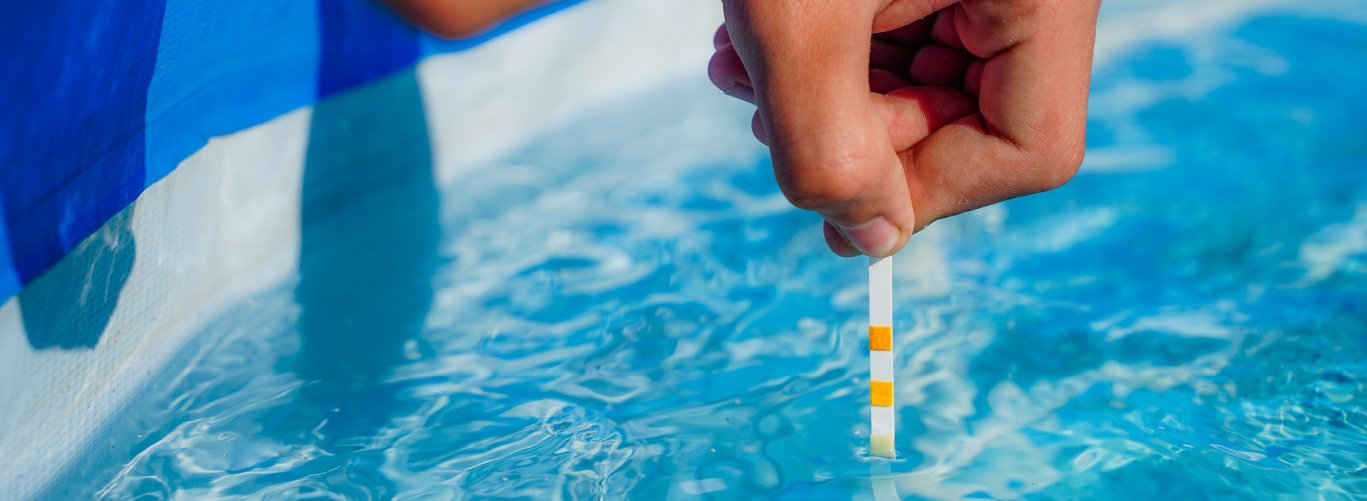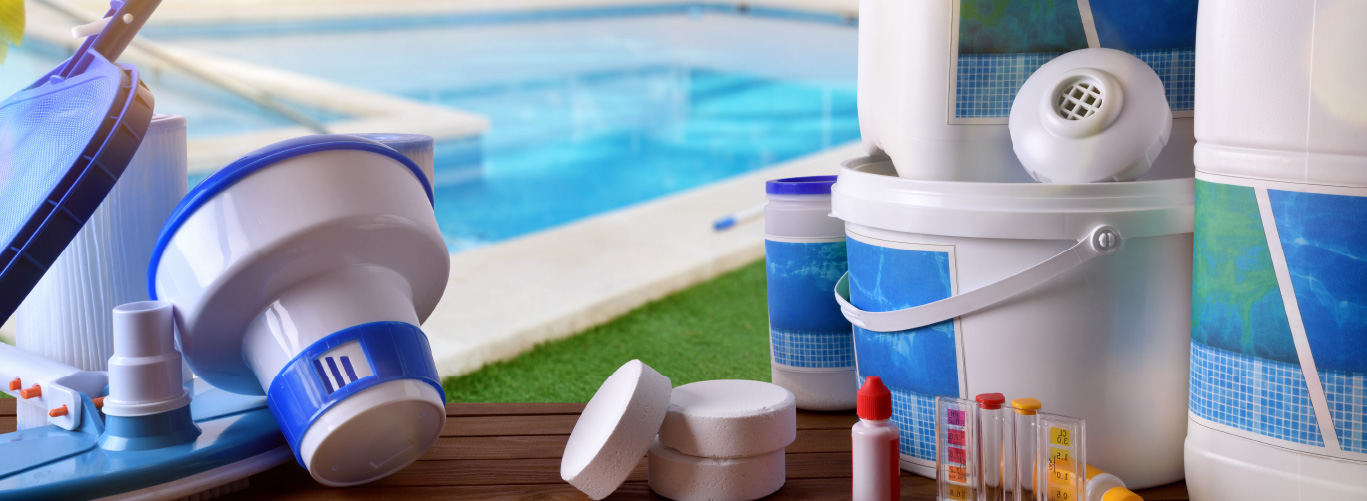Pool Chemical Guide for Beginners
Owning a pool is the epitome of relaxation and summer fun, but it doesn't come without its responsibilities. Keeping your oasis sparkling clean and safe to swim in means diving into the realm of pool chemicals. For many new pool owners, the shelves of chlorine tablets, pH adjusters, and algaecides can seem daunting. But fret not, even the most experienced pool keepers had to start somewhere. In this comprehensive guide, we'll break down the essentials of pool chemical management in a way that's approachable for beginners. From understanding the purpose of each chemical to safety tips and crafting a maintenance routine, we've got you covered. Let's ensure your pool is not just a beautiful addition to your home, but a haven that's both inviting and safe for all who take a dip.

Understanding Pool Chemicals: A Dive into the Essentials
When it comes to treating your pool, having a good understanding of the necessary chemicals is crucial. Knowledge is your strongest ally in maintaining a well-balanced and pristine water environment. Let’s dive deeper into the mainstay chemicals that play a vital role in keeping your pool water in perfect harmony, ensuring a refreshing and enjoyable swimming experience for all.
Chlorine: The Protector of Pool Purity
Chlorine is the superhero of pool sanitation, tirelessly battling bacteria and other harmful contaminants. It comes in various forms from quick-dissolving granules to time-release tablets and plays a crucial role in maintaining water that is safe and clean to swim in.
pH Balancers: The Unsung Heroes of Hygiene
A balanced pH level lies at the heart of every successful pool chemical regimen. pH balancers, such as alkalinity increasers and decreasers, help keep the water neither too acidic nor too basic, ensuring that your other chemicals perform at their best and that your pool equipment is well-protected.
Algaecides: The Algae Annihilators
If your pool succumbs to the dreaded green tinge or develops slimy patches, algaecides are the solution. These chemicals combat and prevent a variety of algae strains. Preventing an algae outbreak is often easier than treating one, so a little algaecide goes a long way in your weekly pool management.
Clarifiers: The Water Whisperers
For water so clear, you’ll believe it’s magic; meet the clarifiers. These agents work to coagulate tiny particles into larger clumps that can be more easily filtered, leaving your pool water looking crystal clear.
Shock Treatments: The Contaminant Combatants
There are times when your pool needs a little extra TLC. This is where shock treatments come in, effectively oxidizing and breaking down contaminants like sunscreen, sweat, and environmental debris. A routine shock can also prolong the lifespan of your pool’s equipment by preventing clogging and scaling.

Pool Chemical Safety Tips: First, Do No Harm
Working with pool chemicals requires a delicate touch and a healthy respect for their potential hazards. Here’s how to keep your poolside chemistry safe.
Proper Storage and Handling
Pool chemicals are best kept in a cool, dry place away from direct sunlight and moisture. Ensure they are stored out of reach of children and pets. Always seal containers tightly and never mix different chemicals together.
Protective Measures
When handling pool chemicals, personal protective equipment (PPE) becomes your best friend. Wear gloves, protective eye-wear, and a mask when dealing with chemicals to avoid any direct contact or inhalation of fumes.
Creating a Pool Chemical Maintenance Routine: The Key to Consistency
Consistency is absolutely crucial when it comes to successful pool maintenance. By establishing a regular routine, you can ensure that your water is always in perfect balance and condition. This includes tasks such as checking and adjusting the chemical levels, cleaning the filters, and maintaining the proper water circulation. By dedicating time and effort to these important steps, you can enjoy a clean and inviting pool all year round.
Testing Water Quality
Regularly testing your pool water is the only way to know what it needs. Invest in a quality water-testing kit that can measure pH, chlorine levels, alkalinity, and other key parameters.
Balancing Chemicals Based on Test Results
Whenever your tests reveal imbalances, act promptly to correct them. Adjust one chemical at a time and never pour pool chemicals directly into the skimmer or near other pool chemicals.
Regular Maintenance Schedule
Set aside a day each week for a complete pool check-up. Clean the skimmer basket, backwash the filter as needed, and top off the water as evaporation occurs. This regular attention will prevent issues from escalating.

Common Pool Chemical Problems and Solutions: Troubleshooting Tricks
Despite your best efforts and meticulous planning, there are instances where things can go awry. Whether it’s a minor mishap or a major setback, it’s important to know how to navigate through the most common chemical quandaries. By equipping yourself with the right knowledge and strategies, you can confidently handle unexpected situations and find effective solutions. So, let’s delve into the intricacies and explore the best approaches to tackle these challenges head-on.
Green or Cloudy Water
Algae or high levels of particles are often the culprits. Increase your chlorine levels and use a clarifier if needed. In severe cases, a shock treatment can help.
Skin and Eye Irritation
This is typically caused by high chlorine levels. Reduce chlorine and adjust your pH accordingly. Always encourage swimmers to take a quick rinse after swimming to remove residual chemicals.
Algae Growth
Prevention is the best medicine. Maintain chlorine levels and use an algaecide regularly, especially during hot weather or frequent use.
Chemical Imbalances
Sometimes it’s just a numbers game. Keep your testing kit close and balance your pool chemicals promptly to avoid compounding issues.
Conclusion
There’s a certain satisfaction that comes from lounging by the pool, knowing that the water is immaculate and the environment is safe. By understanding the role of each pool chemical, respecting their potential dangers, and crafting a diligent maintenance plan, you’re not just prolonging the life of your pool — you’re also ensuring every swim is a refreshing and revitalizing experience. And remember, practice makes perfect. The more you engage with your pool’s chemistry, the more intuitive it will become. Happy swimming, and enjoy the beautiful aquatic haven you’ve created right in your backyard.


